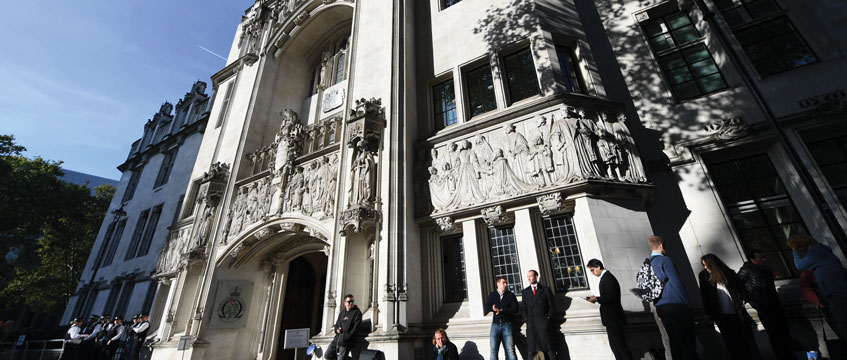In Gala Unity Ltd v Ariadne Road RTM Co Ltd [2012] EWCA Civ 1372; [2012] 3 EGLR 79 the Court of Appeal found that under the Commonhold and Leasehold Reform Act 2002, a right to manage company could also acquire the right to manage appurtenant common estate facilities within a multi-building estate. This decision has caused practical difficulties. The possibility of Gala Unity being overturned by the Supreme Court in Firstport Property Services Ltd v Settlers Court RTM Co Ltd and others [2022] UKSC 1; [2022] PLSCS 5 made this an eagerly anticipated decision.
The right to manage
The statutory right to manage broadly permits leaseholders of a flat within a building to acquire the right to manage their specific building if the qualifying criteria is met. Contractual management functions that would ordinarily be exercised by the landlord or management company are transferred to the RTM company established by the leaseholders.
Acquiring the right to manage can be beneficial. It provides leaseholders with direct control over the services provided for the benefit of their flats and the costs of the same.
Responsibility for management functions is relatively simple when a right to manage is acquired in respect of a specific building and appurtenant property that exclusively serves the building. The waters become muddied when an RTM company also acquires the right to manage appurtenant property shared in common with other buildings on a multi-building estate, as determined in Gala Unity.
The problem
The practical problem caused by Gala Unity was that although a RTM company acquired control over the management of wider estate facilities, the original landlord or management company remained contractually liable for the provision of the same services for the benefit of other lessees in the remaining buildings on the estate.
In the scenario outlined above, issues can arise as to whether the RTM company or the landlord/management company is responsible for the provision of estate services and the recoupment of the costs of the same through the service charge provisions of all the lessees on the estate.
This is the issue that arose in Firstport Property Services.
The facts
Virginia Quay Estate in London, E14, was a multi-building estate surrounded by communal areas. Settlers Court was a block of flats within the estate. In November 2014, the respondent, Settlers Court RTM Company Ltd (Settlers), acquired the right to manage Settlers Court. Under the terms of the lessees’ tripartite leases, Firstport Property Services Ltd was the management company responsible for the provision of wider estate services. When Settlers acquired the right to manage Settlers Court, Firstport continued to provide the estate services including for the benefit of the lessees of Settlers Court.
In 2018, Settlers applied to the First-tier Tribunal for a determination as to payability of the service charges levied on the lessees of Settlers Court for the estate service provided by Firstport.
Settlers argued that it had acquired the right to manage the wider estate facilities when it acquired the right to manage Settlers Court.
The leapfrog decision
Relying on Gala Unity, the FTT determined that the service charges for the estate management were payable to Settlers, not Firstport. The management functions for Settlers Court and the wider estate had passed to Settlers. Firstport appealed to the Upper Tribunal (Lands Chamber). The UT, however, determined that it too was bound by Gala Unity, which had not been decided in per incuriam as contended by Firstport. The UT granted Firstport permission for a leapfrog appeal to the Supreme Court.
Firstport’s arguments before the Supreme Court were focused on the purpose of the Act. It argued that chapter 1 of the Act conferred exclusive management rights on an RTM company only in respect of a specific building or parts of buildings. It was not intended to confer a broader right to share the management of estate facilities used in common with other buildings on a multi-building estate. The Supreme Court agreed.
In overturning Gala Unity, the Supreme Court observed that if the right to manage under the Act was construed in the manner envisaged in Gala Unity, the problems created by the extension of the right to manage to shared estate facilities were so great “as to amount to absurdity”.
Having regard to the right to manage provisions of the Act, the Supreme Court noted that save in certain specified circumstances, an RTM company was required to perform its allocated functions unilaterally. It had no obligation to share management with a third party. This was a “powerful pointer” in construing an RTM company’s management functions as being limited to the management of its specific building together with appurtenant property that was utilised exclusively for the benefit of the lessees of that building.
Relief
The Supreme Court’s decision will be welcomed by landlords and management companies alike. On a practical level, RTM companies which have assumed such management functions over estate facilities will need to assess their position in light of this decision.
Key point
- An RTM company cannot acquire the right to manage wider estate facilities on a multi-building estate under the Commonhold and Leasehold Reform Act 2002
Elizabeth Dwomoh is a barrister at Lamb Chambers







